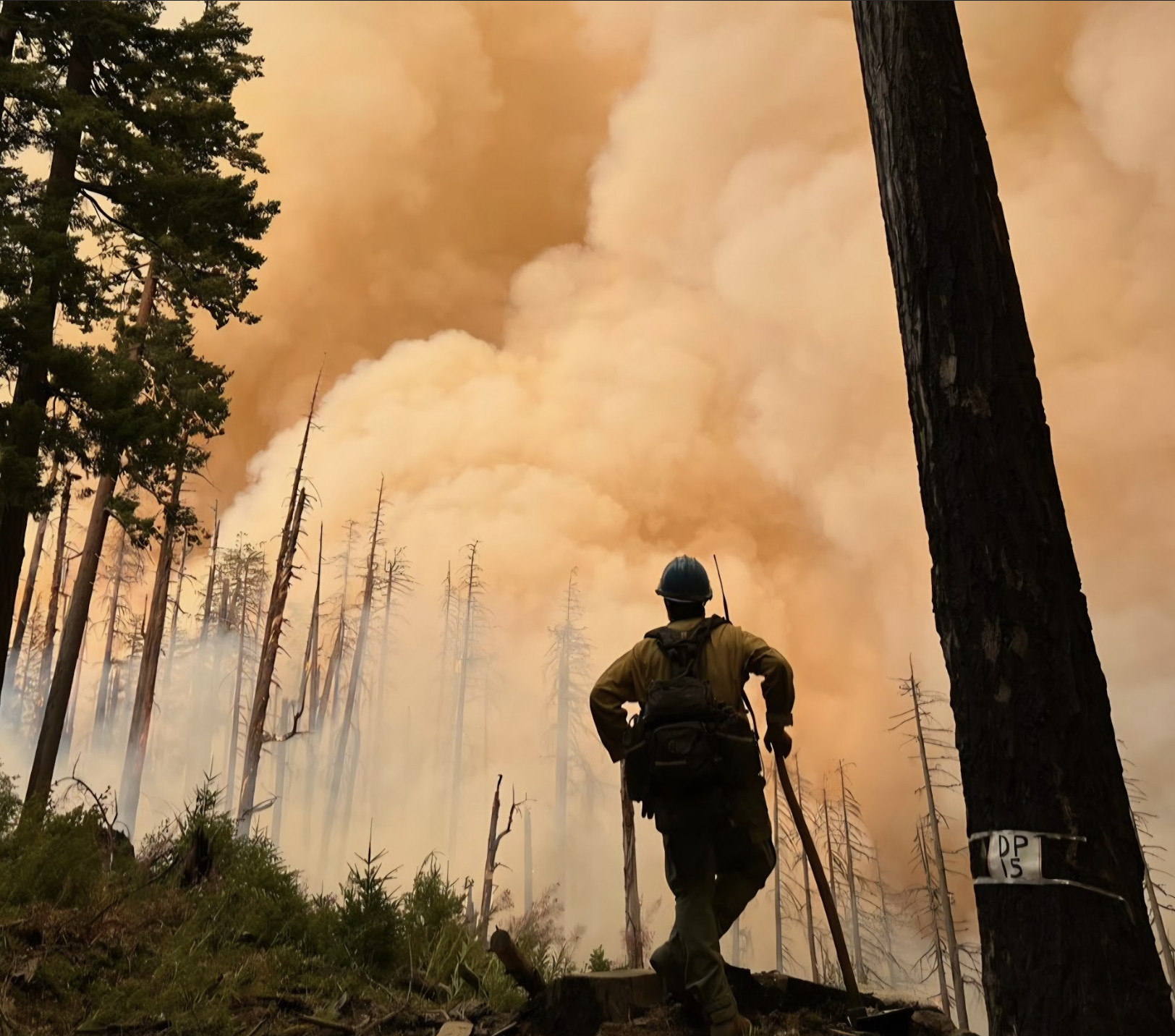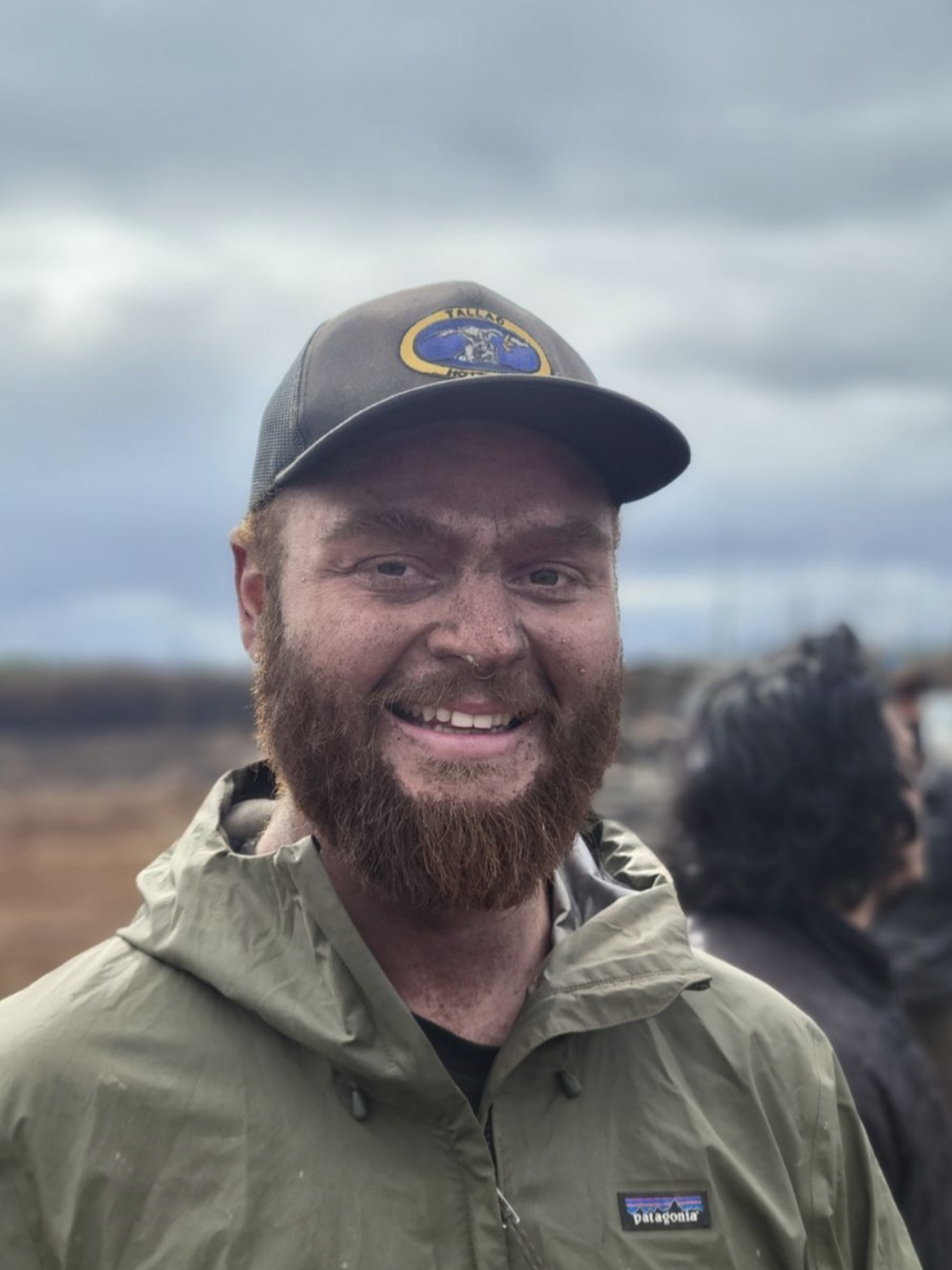Jp Avilla completed three seasons with the Tallac Hotshots. Now he’s taking his next step toward municipal firefighting. Photo provided by Jp Avilla.
This is a story of survival, not just from disease, but from limits most of us never push past. It's about fire, water, and new beginnings.
From the front lines of wildfires to the depths of the ocean, to surviving cancer, my older brother Jp Avilla, 30, has given it his all.
As a teenager, he was diagnosed with acute lymphoblastic leukemia (ALL), a cancer that normally occurs in young children between the ages of three and five.
“For some reason mine was dormant… it affected me later in life when I was like 14 or 15,” says Avilla.
ALL is a blood cancer that starts in the bone marrow, causing it to produce too many immature white blood cells. This overproduction makes it difficult for the body to fight infections and diseases.
“For treatment, there was no radiation because there was no cancerous mass to pinpoint or focus on,” says Avilla. “It was my entire circulatory system, my bone marrow and my spinal column.”
Avilla began daily and nightly chemotherapy the day he was diagnosed. Doctors prescribed steroids and medications for pain, nausea, sleep, and anxiety.
“The first day I was diagnosed, they surgically inserted a port-a-cath in my chest… a tube that went straight into my main artery,” he remembers.
“My body was going through all these chemicals and they didn’t help. I became bedridden, unable to leave the house.”
Avilla’s parents stepped in after watching him continue to fail, letting him join the forefront of medical marijuana before it became more socially accepted.
“I was able to sleep, go the whole day without throwing up, I was able to go to school and be a somewhat normal kid,” he says with a smile.
It took four years of daily chemo and another five years before Avilla was declared cancer free and out of remission. After his recovery, Avilla says he became something of an adrenaline junkie.
“I danced with the veil. I experienced surviving something, and that shaped me a lot,” he says.
Avilla’s first dive off the coast of Utila, Honduras hunting lionfish for the Whale Shark Oceanic Research Center. Photo provided by Jp Avilla.
After graduating high school, Avilla struggled to find direction, and after dropping out of the University of Reno, Nevada (UNR) he started to look for a new path.
“I got a second chance at life and I wasn’t living it like I wanted to,” he says.
Plan B for Avilla was to join the military like his older brother. However after sharing the plan with his older brother he abandoned it for plan C, traveling.
“One of his military buddies had just come back from Southeast Asia. He broke down how far the dollar would stretch. I left that same year, after my best friend graduated from UNR,” he says. “That’s when I really started living.”
Avilla spent over nine months backpacking across Southeast Asia, staying in hostels and diving into a new world, literally.
“We were in Koh Tao, Thailand, one of the scuba diving capitals of the world. I immediately fell in love with the ocean underworld.”
In two weeks Avilla completed over twelve dives never expecting to make it to instructor level six years later.
“I overstayed my welcome. I went from basic diver to advanced to specialty diver in just a few weeks,” he says.
Still, something felt missing when he returned to the U.S. While working at Tahoe Forest Hospital and pursuing his advanced EMT certification, he discovered a new calling.
“I felt like I still needed a purpose, and it eventually led me to work for the Tallac Hotshots.”
When Avilla first started training for wildland firefighting it was the most grueling, physically and mentally demanding experience of his life.
“I kept thinking that they were going to fire me. I told myself everyday that as long as they’re not gonna fire me, I’m gonna keep putting one foot in front of the other up this massive hill.”
Avilla found a new community that taught him discipline.
“I found myself with people who were ready to put their blood, sweat, and tears into something bigger than themselves,” he says.
During his first year, Avilla recalls a couple close calls fighting the Dixie Fire, one of the largest wildfires in California history.
“It just seemed impossible to stop. The fire break ended up being six dozer blades wide. It would be jumping miles ahead of itself from fallout in the air,” he says.
The crew was emergency demobilized just days before finishing their role on the Dixie. A new fire broke out: the Caldor Fire, south of Lake Tahoe.
“About half of our crew had homes in South Lake Tahoe or Meyers. We started putting out fires on people’s fence lines, saving entire neighborhoods.”
Despite the trauma and close calls, Avilla returned for two more fire seasons. In between fire seasons Avilla continued to travel and dive for conservations.
“I traveled to Honduras for 10 weeks and got my dive master and instructor certification while helping the Whale Shark Oceanic Research Center,” he says.
The Whale Shark Oceanic Research Center was attempting to revive the local coral reefs by creating a coral nursery and medications to help with infections. There, he contributed to coral reef restoration and lionfish population control. When not traveling abroad, Avilla volunteers for Clean Up the Lake, a conservation project that focuses on cleaning local alpine lakes.
“I believe we were among the first people to dive in Spooner Lake to help pilot research,” he says. “I felt a little like Neil Armstrong. One fin for man, one giant frog stroke for conservation.”
While he enjoys volunteering he has also found a new passion for teaching people to dive.
“It’s pretty cool seeing new divers I’ve trained get passionate diving. Teaching people to dive has been a whole new layer of healing,” says Avilla.
Avilla’s next step? Currently Avilla is studying for the entrance and pharmacology exam to return to the University of Nevada, Reno to pursue the competitive paramedic program for spring 2026.
“I think this will open doors for municipal fire for me,” he explains.
When asked what advice he’d give someone struggling with a health diagnosis that’s shaken their identity, Avilla answers from the heart.
“It might sound cliché, but the number one thing is: You’re not alone, and it’s going to be okay. Step out of your comfort zone and find people you connect with, there’s no shame, no ego, and no pride worth feeling alone,” he said.




